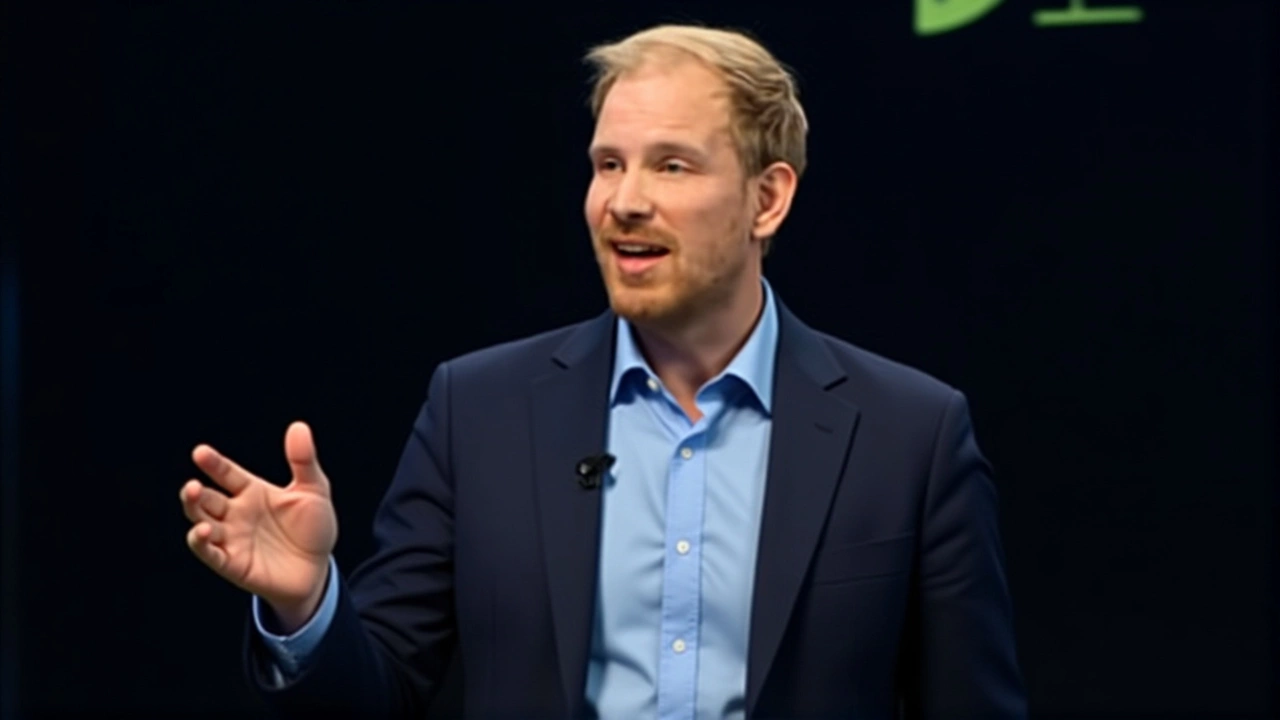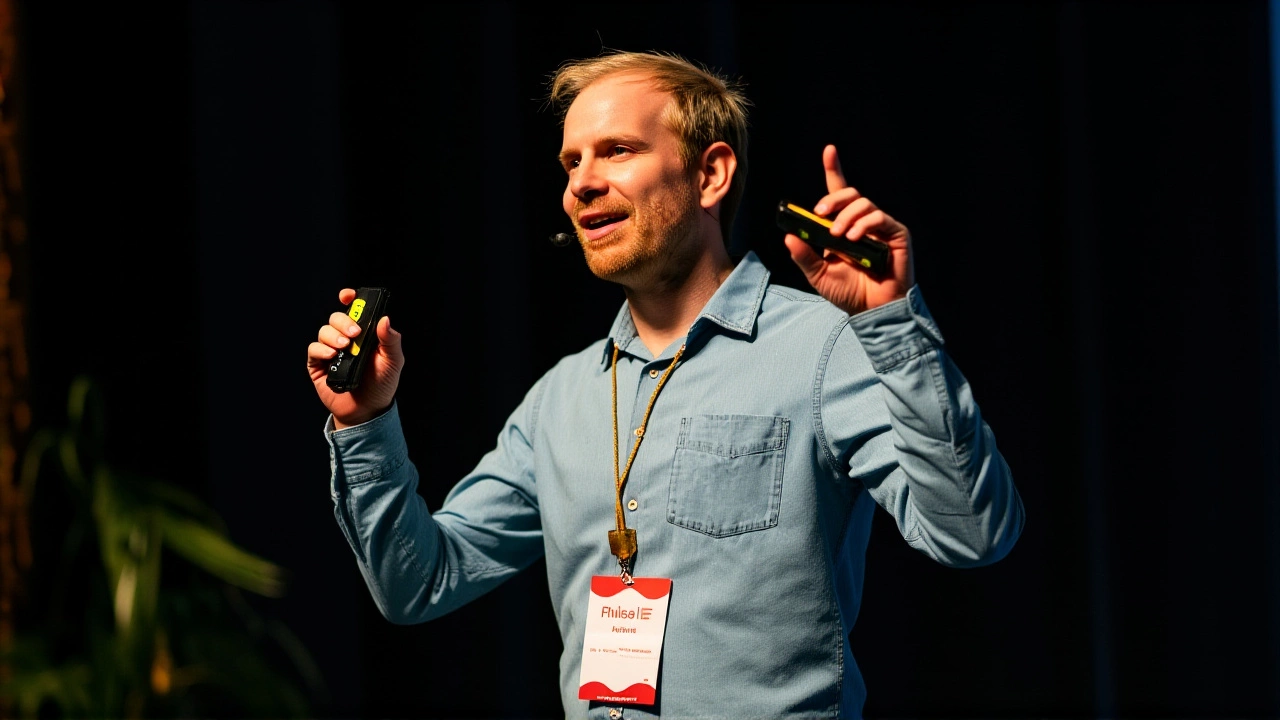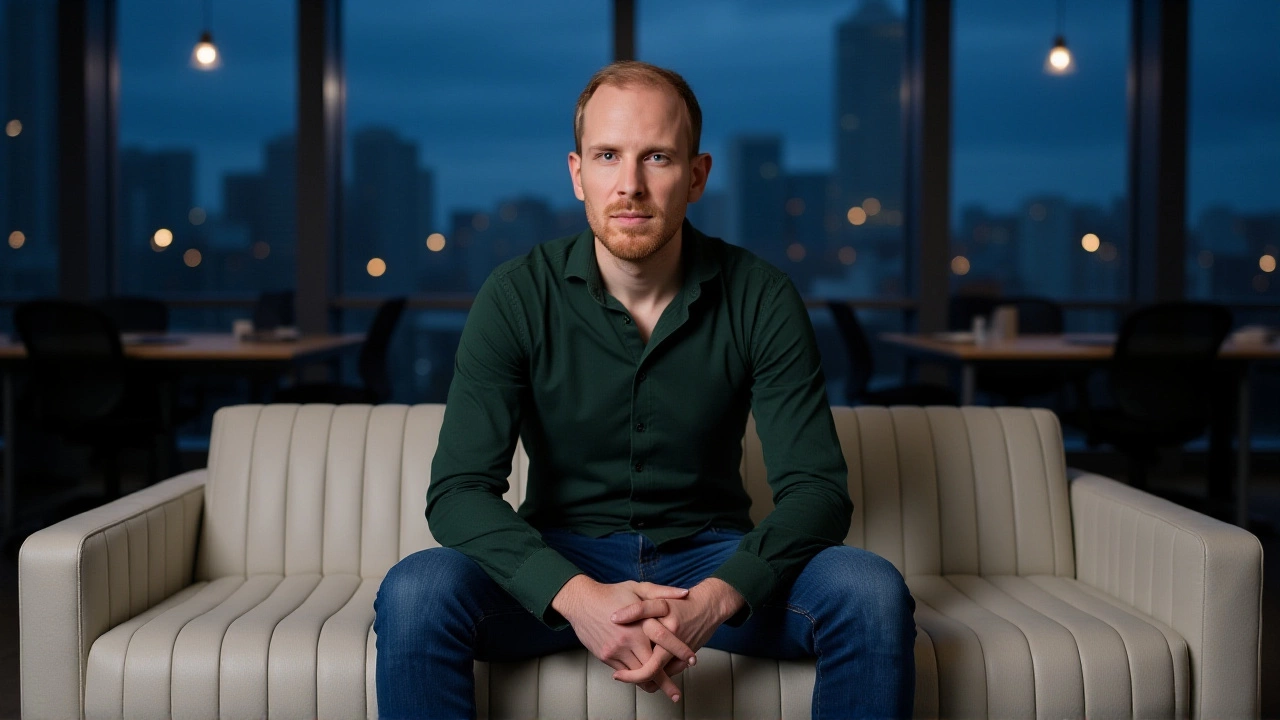When Rutger Bregman stepped onto the stage of the BBC Radio Theatre on the morning of November 25, 2025, he didn’t expect his words to be erased before they reached the airwaves. The Dutch historian, known for his provocative takes on human nature and economic justice, delivered a blistering opening to his Reith Lecture series — one that included calling former U.S. President Donald J. Trump "the most openly corrupt President in American history." But when the BBC broadcast the lecture later that day, that line was gone. So were his references to Trump as a "convicted reality star" and a "modern-day Caligula." The silence on air was louder than the words themselves.
What Was Removed — And Why It Matters
Bregman, 46, recorded the full lecture in front of 500 people at the BBC’s historic Broadcasting House in London. It had already passed through the corporation’s internal editorial review. Four weeks prior, editors had approved every word. Yet, just hours before broadcast, the BBC pulled the plug on that one sentence — and others — citing "legal advice." The decision, Bregman says, came from "the highest levels within the BBC," not junior editors. "They deleted a sentence in which I described Donald Trump as 'The most openly corrupt President in American history.' That line is gone," he posted on X, his statement going viral by 7:30 AM UTC on November 26.
It’s not just about Trump. It’s about who gets to define truth in public discourse. Bregman’s critique wasn’t a rant; it was grounded in his research. He’s the author of Humankind: A Hopeful History, a global bestseller that challenges the notion that humans are inherently selfish. His commentary on power structures is deliberate. And now, the BBC — an institution founded on the principle of public service journalism — has edited out a direct factual claim made by its own invited speaker. That’s not neutrality. That’s fear dressed up as caution.
The Reith Legacy Under Pressure
Established in 1948 and named after the BBC’s first director-general, BBC’s Reith Lectures have hosted intellectual giants: Bertrand Russell, Margaret Atwood, Joseph Rotblat, David Attenborough. These weren’t polite talks. They were confrontations with power, with dogma, with uncomfortable truths. Russell questioned nuclear deterrence. Attenborough warned of ecological collapse decades before it entered mainstream headlines. The series was never meant to be safe.
Now, the BBC is editing a lecture for fear of legal repercussions — even though the statement about Trump’s corruption isn’t legally indefensible. Trump was convicted in New York on 34 felony counts of falsifying business records in May 2024, a case directly tied to hush money payments. Bregman’s phrasing, while strong, is factually anchored. So why delete it? Was it pressure from U.S. political allies? A legal team overreacting? Or something more systemic — a creeping culture of self-censorship within the BBC’s upper echelons?

"Self-Censorship Driven by Fear Should Concern All of Us"
Bregman’s reaction wasn’t anger — it was dismay. "I’m genuinely dismayed by it," he wrote. "Not because people can’t disagree with my words, but because self-censorship driven by fear should concern all of us." That line cuts deeper than any legal brief. It’s a warning to every media organization that trades in truth: when you remove a controversial but substantiated claim, you don’t protect yourself — you erode public trust.
And it’s not the first time Bregman has called out media caution. In interviews over the past two years, he’s criticized outlets for sanitizing political discourse to avoid "offending" powerful figures. He sees the BBC’s move as part of a broader trend: institutions retreating from bold commentary under the guise of impartiality. But impartiality doesn’t mean silence. It means presenting evidence fairly — not deleting inconvenient truths.
What Happens Next? The Second Lecture Looms
The controversy erupted just one week before Bregman’s second lecture, scheduled for December 3, 2025, at the same venue. Will he walk out? Will he rewrite his script? Will the BBC demand a pre-broadcast review again? The stakes are higher than ever. If the BBC continues to edit his content, it risks turning the Reith Lectures into a hollow shell — a platform for safe, sterile ideas, not challenging ones.
Meanwhile, the BBC’s own internal contradictions are glaring. The corporation operates under a Royal Charter requiring impartiality. But it also has a legal team that reportedly advised removing a statement that’s been widely reported by The Guardian, The New York Times, and Politico. If the statement is legally risky, why was it approved in the first place? Why wait until broadcast to act? The answer suggests politics, not law, is driving the decision.

The Bigger Picture: Media, Power, and the Erosion of Truth
This isn’t just about one sentence. It’s about who controls the narrative. The BBC, with its £5.03 billion annual budget and 22,000 employees, is one of the most powerful media institutions on earth. When it chooses silence over truth — even when that truth is legally defensible — it sets a precedent. Other outlets will follow. Journalists will hesitate. Students will learn that speaking plainly is dangerous.
And let’s be clear: Trump’s conduct as president — from the hush money payments to the January 6th insurrection — has been scrutinized by courts, Congress, and international observers. Calling him "openly corrupt" isn’t opinion. It’s a summary of documented behavior. To edit that out isn’t legal prudence. It’s cowardice.
Frequently Asked Questions
Why did the BBC remove the sentence about Donald Trump’s corruption?
The BBC claims the edit was made on "legal advice," though no specific legal threat has been publicly identified. Bregman’s statement — that Trump is "the most openly corrupt President in American history" — aligns with the 34 felony convictions he received in New York for falsifying business records related to hush money. Critics argue the BBC’s decision reflects political caution rather than legal necessity, especially since the lecture had already passed editorial review weeks earlier.
How does this affect the credibility of the Reith Lectures?
The Reith Lectures have long been seen as a platform for fearless intellectual debate, featuring figures like Bertrand Russell and David Attenborough. Removing a fact-based, legally supported critique of a former U.S. president undermines that legacy. If speakers can’t speak plainly without fear of post-recording censorship, the series risks becoming a curated echo chamber rather than a forum for truth.
Is Rutger Bregman’s criticism of Joe Biden also being censored?
Yes. The unedited version of the lecture also included Bregman’s characterization of President Joe Biden as "an elderly man in obvious mental decline" and criticism of "the establishment propping him up." Those remarks were also removed. This suggests the BBC’s edits weren’t targeted solely at Trump but reflect a broader pattern of avoiding any criticism of sitting U.S. political figures — regardless of whether those critiques are based on observable facts.
What’s the timeline for the rest of the Reith Lectures?
The second lecture is scheduled for December 3, 2025, at 9:00 AM GMT at the BBC Radio Theatre in London. Bregman has not confirmed whether he will proceed with the remaining three lectures. If the BBC continues to demand pre-broadcast edits, he may withdraw — a move that would draw global attention to the erosion of editorial independence at one of the world’s most respected broadcasters.
Does the BBC have a history of censoring political content?
The BBC has faced accusations of political bias before, particularly around Brexit and U.S. elections. But this is the first known case where a Reith Lecture — a platform designed for unfiltered intellectual discourse — was edited after full approval. Previous controversies involved omissions or tone, not deletion of substantiated factual claims. The scale and timing of this edit make it unprecedented in the 77-year history of the series.
What’s at stake for public broadcasting globally?
If the BBC — once a global symbol of journalistic integrity — begins silencing uncomfortable truths for fear of legal or political fallout, other public broadcasters may follow. This sets a dangerous precedent: that truth must be filtered through the lens of perceived risk, not public interest. The result? A media landscape where power, not evidence, determines what audiences hear.
